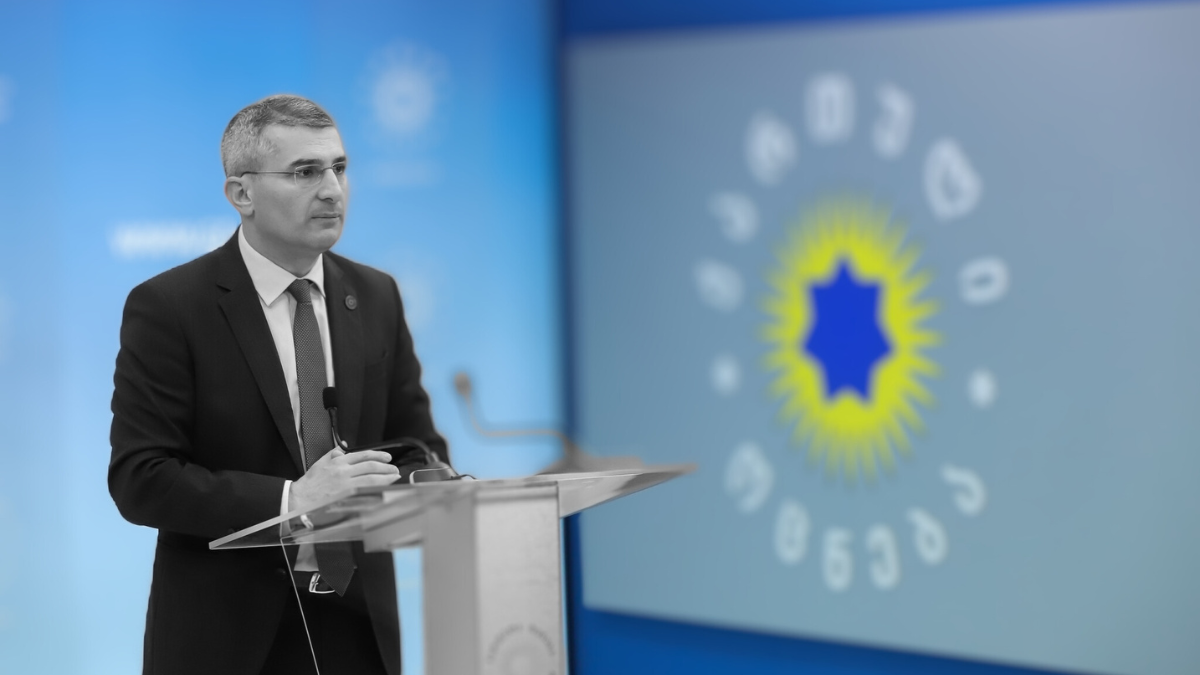After the Georgian Dream Party announced that it was re-introducing the Russian-style Foreign Agents Law last week, Georgia’s Western partners issued statements criticizing the move. NATO Secretary General Jens Stoltenberg expressed flat-out opposition to the law on behalf of the alliance, which Georgia has sought to join for decades, labeling it “an effort against strengthening democratic institutions in Georgia.” The Chairman of the German Bundestag’s Foreign Affairs Committee called it a “breach of trust.” Norway, to its credit, excoriated in its statement the proposed constitutional amendments to revoke LGBT civil rights, along with the “foreign agents” law.

Ted Jonas, a dual US-Georgian citizen, has lived in Georgia for nearly 30 years. An international lawyer and environmental activist, he was part of the original team that opened the National Democratic Institute for International Affairs office in Tbilisi in 1994.
But the Foreign Agents law was not all that the Georgian Dream announced in its manifesto last Monday. It also said that the former US Ambassador to Georgia, Kelly Degnan, “represented the interests not of this country [i.e., the USA] but of the “Global War Party” in Georgia.” It also claimed that the US National Endowment for Democracy – a US government-funded foundation – is “at the heart of revolutionary processes” and “pursues the interests of a foreign power, rather than those of the Georgian people.” The “foreign power” referred to is evidently Ukraine.
These attacks are patently attacks on the United States.
Oddly, the US response to the GD’s attacks has been muted. The State Department’s statements, and those coming from some US Senators, mentioned only the Foreign Agents law, and with a considerably milder tone than statements issued by Georgia’s other partners. Apparently taking note of this, the Helsinki Commission of the US Congress yesterday issued a considerably stronger statement, saying that the proposed law is a “deliberate attack on Georgia’s fragile democracy, self-sabotage of its European candidacy, and a blatant rejection of the Georgian people’s overwhelming and hard-won Euro-Atlantic choice.” Good for the Helsinki Commission.
But what remains puzzling to me is why the United States has not responded to the attack on the US itself. Since 1992, the United States has provided Georgia with nearly USD 4.5 billion in aid, USD 1 billion alone, following Russia’s invasion of Georgia in August 2008. This is a large amount of aid for a country of only 3.8 million people, which also receives large amounts of foreign assistance from the EU, its member states, Japan, and multilateral development banks. Georgia has been one of the highest per capita recipients of US foreign aid.
The Georgian government’s accusations against former Ambassador Kelly Degnan and the National Endowment for Democracy are obviously not only attacks against her and it: they are attacks on a representative and an organ of the United States, which means they are attacks on the United States itself. Kelly Degnan is a professional US foreign service officer with decades of service. To say that she is a representative – an agent – of some foreign power other than the United States is to say that the United States intentionally placed and ran an agent of a foreign power (i.e., Ukraine) in Georgia. To say that NED is fomenting revolution in Georgia is to say that the United States is doing so. This is despite the enormous effort the United States has made for over 30 years to support Georgia’s military, democracy and stability, citizens, budget, and infrastructure development.
In most societies, an accusation unanswered is an admission to that accusation. Nowhere is this more true than in Georgia. To be insulted, as the United States has been by the Georgian Dream government, and not to respond is seen in Georgian culture as both weak and guilty. It is to accept humiliation. It’s not just Kelly Degnan or the NED that the United States is failing to defend by not responding to these scurrilous allegations: it’s the entire purpose and intent of its involvement in Georgia for 33 years.
The United States should toughen its response to the attacks coming from the Georgian Dream government not only to defend its own honor and reputation. It should do so to make good on its promise to support democracy and human rights in Georgia. Failure to respond to attacks on US ambassadors and on one of America’s own institutions for supporting democracy, the rule of law and civil society undermines those very goals. The Georgian people fighting for democracy and civil rights are as ill-served by timidity as are the standing and reputation of the United States.
And it is not only NGOs labeled as “foreign agents” that are the target of the Georgian Dream’s latest moves, nor LGBT people whose rights will be revoked by the GD’s latest constitutional amendments: it is Georgia’s entire, historic Western orientation. The Georgian Dream has thrown down the gauntlet, and both Georgian civil society and the country’s Western partners must respond.
The views and opinions expressed on Civil.ge opinions pages are those of the authors and do not necessarily reflect the official policy or position of Civil.ge editorial staff
